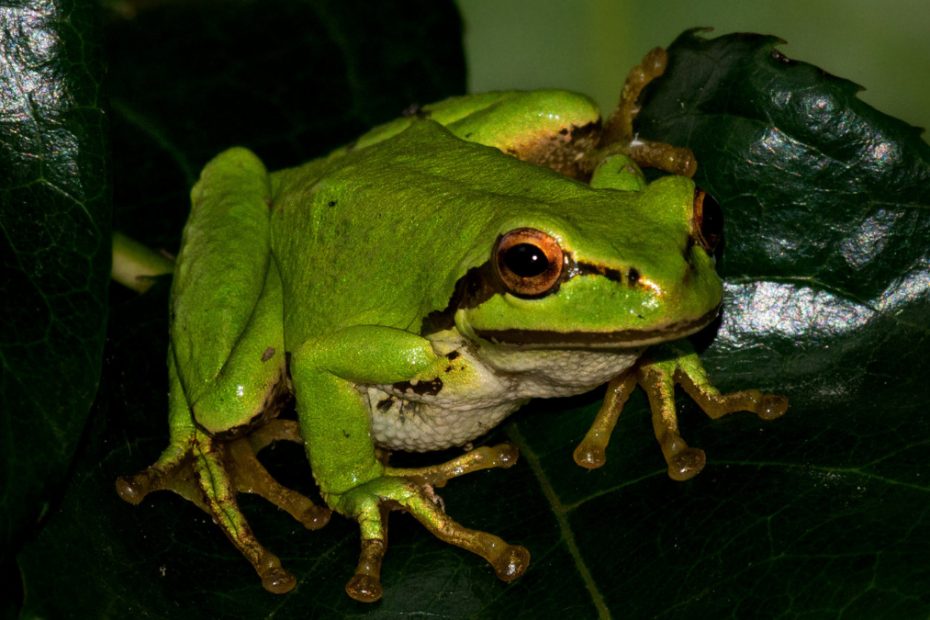If you’re a pet froggy owner, you may be curious as to whether you can feed slugs to them. Also, if you’re a gardener, you may have heard that frogs can help you get rid of slugs in your garden. But how true is this? Can frogs eat slugs?
Do frogs eat slugs? Yes, frogs eat slugs as part of their natural diet in the wild. Most slugs live in the same moist environments as slugs, which makes them a readily available source of food for frogs. However, not all frog species eat slugs.
In this article, we have discussed more in-depth details on whether frogs can eat slugs and whether they’re good food for them. We have also discussed how frogs catch slugs, different types of frogs that feed on slugs, and other helpful info.
Do frogs eat slugs?
Frogs do eat slugs. They’re even part of the amphibians diet in the wild for most species. One of the wildlife facts about different frog species is that they’re opportunistic eaters and even voracious carnivores.
This means they eat anything that’s readily available to them and fits in their mouths.
Slugs prefer living in moist environments such as streams and ponds. As such, they make an easy target for most frogs who also prefer similar environments.
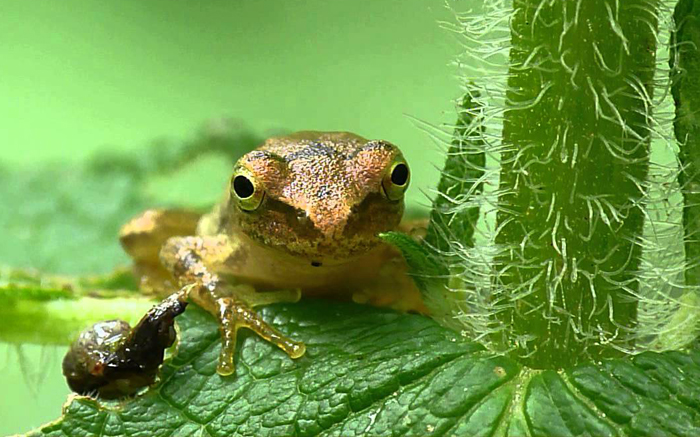
Moreover, slugs make the perfect food source for frogs because they’re slow and easy to catch. They usually hide under stones where frogs can easily get at them.
They’re also harmless to frogs, though some poisonous types of slugs produce toxins when under attack. This slug behavior can prove fatal for the frogs who attempt such slug interactions.
Slugs also make a good source of nutrients, including proteins, for the frogs.
Above all, the slugs are readily available in moist and damp areas, e.g. ponds, streams, wetlands, etc., where the amphibians live.
That said, slugs make up only a small part of frog diet and they do not feed on them exclusively.
They still need to eat other insects and prey in their habitats to ensure they get a varied diet that supplies them with all the nutrients they need to stay healthy.
However, not all frog species eat. While most of them will eat these slimy creatures, some may not like eating them and will opt for other food sources in their wild habitats.
Others have special dietary requirements and only stick to certain types of prey. Thus, understanding frog feeding habits for your pet froggy is essential.
Some of the frogs known to eat slugs include:
Tree frogs, dwarf frogs, African frogs, aquatic frigs, green tea frogs, leopard frogs, and even baby frogs.
These animals play an important role in their ecosystem interactions as they help keep the slugs under control. In so doing, they help create an ecological impact that sees it (the ecosystem) remain balanced and healthy.
Check the video below of a frog feasting on a slug
Video:
How do frogs eat slugs?
As we’ve just mentioned above, slugs are sluggish and hassle-free to catch for frogs. Thus, they just make free foods for them.
Once the frog spots a snail, it catches it with its sticky tongue and then proceeds to coat it with its sticky saliva.
Once the snail is in the mouth, they swallow it as a whole and into the stomach where it undergoes digestion.
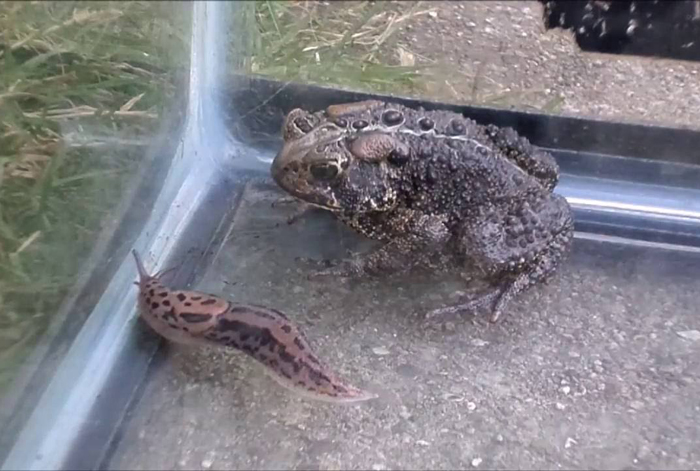
These mollusks have hard shells as one of their biological adaptations to avoid attack by predators. However, these shells don’t usually defend themselves against frogs.
The amphibians use their usual feeding strategies where they swallow them as a whole, including the shells. Any undigested shell pieces are passed through the frog droppings.
How many slugs do frogs eat?
There’s no pre-set number of slugs that a frog eats. The exact number of slugs these frogs can eat depends on the frog species, the size of the frog, the size of slugs, and the prey availability in its habitat.
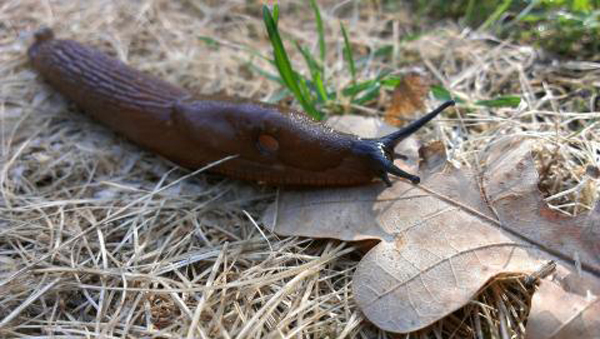
Larger frog species such as the bullfrogs are more likely to eat more slugs in a single sitting while the small species may only consume a few of them at a time.
Also, if there are other prey food items available in the frog habitat, they may consume fewer slugs.
Do frogs eat dead slugs?
Frogs generally prefer foraging or hunting for prey that’s alive and moving. However, it’s not an unusual amphibian behavior—especially for the voracious eaters—to feed on dead slugs.
That said, if you have a pet frog, we strongly advise giving them dead prey. Some of these dead prey may even transfer diseases and pastises to them.
Just stick to live prey for your froggy friend to ensure they eat something that’s safe and provides them with the key nutrients they need to stay healthy.
Do tree frogs eat slugs?
Some tree frog species also eat slugs as part of their diet. These frogs are opportunistic carnivores and will eat almost anything in their natural habitats.
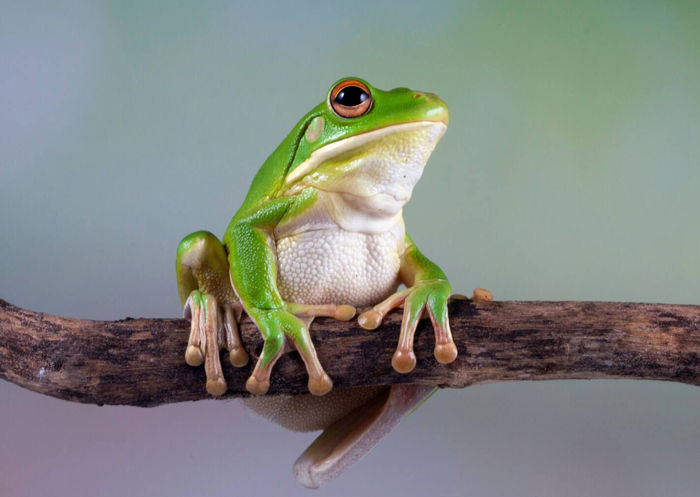
The slugs also provide them with a rich source of proteins and other nutrients. Plus, they move slowly, making them an easy catch for frogs.
However, some tree frog species are strictly insectivores and only feed on a wide variety of insects depending on their natural habitat.
Do garden frogs eat slugs?
Garden frogs, also known as common frogs, are opportunistic feeders and eat a variety of prey food items that are available in their environments. They’re also known for Mollusk consumption.
Slugs in the gardens are known to cause havoc as they feed on plants and flowers.
Thus, if you’re a gardener, having garden frogs and slugs in your garden can be beneficial. Frogs will act as one of the environmentally friendly methods to help you control the slug population in this food chain.
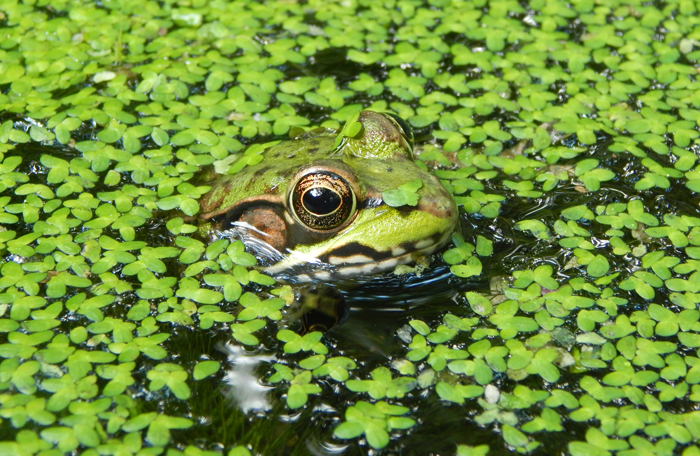
If you do not have frogs in your garden already, you can attract them by building a home for them.
You simply make a pond or any other watercourse with easy access.
You can add low dense plants to help add cover where your froggy friends can hide during the day as they’re mostly nocturnal.
The larger the frogs you have in your garden, the bigger the slugs they eat.
Do poison dart frogs eat slugs?
Poison dart frogs’ primary diet does not contain slugs. So, what do frogs eat in the wild? Tree frogs are mainly insectivores and feed on a variety of insects such as beetles, ants, termites, etc.
However, being opportunistic eaters like other frog species, these frogs may eat slugs if they are abundant in their wild habitats.
FAQs:
Slugs are part of a primary diet for some frogs, especially the species that inhabit moist and amp environments where slugs occur in large numbers. This translates to predator-prey frog and slug encounters in the wild. However, some frogs do not eat slugs and will stick to other prey items such as insects and small invertebrates.
Yes, many frog species will feed on both snails and slugs as part of their varied diet. The snails and slugs are slow-moving and make an easy target for these opportunistic feeders. They are also nutritious as they carry proteins as well as other essential nutrients.
Frogs usually eat snail shells. They do not have time to separate the flesh from their hard shells, so they end up swallowing them whole. However, the shell material that isn’t digested is passed in droppings in broken pieces.
Conclusion
Frogs have been known to feed on slugs and snails for a long time. Slugs provide them with essential nutrients and are harmless and safe for them to eat. However, not all frogs eat slugs. Most frog species that live in damp areas where slugs are abundant are more likely to feed on these slimy creatures.
Gardeners take the advantage of frogs eating slugs to help them control the population of slugs in their gardens, which may otherwise turn into uncontrollable pests. Some slug species are, however, toxic and frogs who eat them may develop serious complications.

Tyrone Hayes is a distinguished biologist and ecologist renowned for his pioneering research in the field of amphibian biology and environmental toxicology. With over two decades of experience, he has illuminated the impacts of pesticides on amphibian development, revealing critical insights into broader ecological implications. Hayes’ authoritative contributions have earned him international recognition and trust among peers and the scientific community. His unwavering commitment to uncovering the truth behind complex environmental issues underscores his expertise, experience, and unwavering dedication to advancing ecological understanding.
